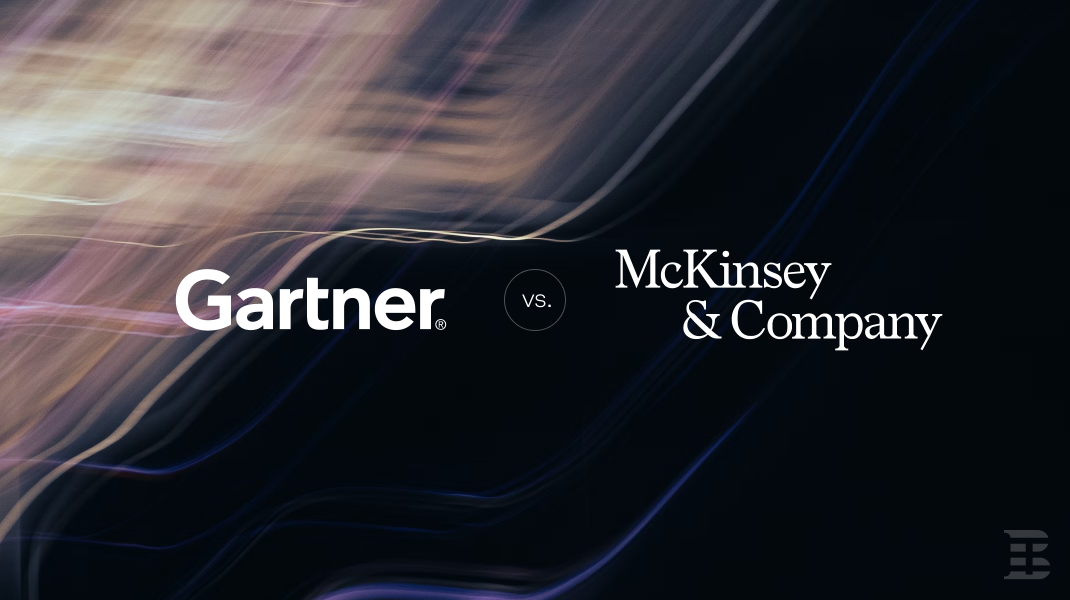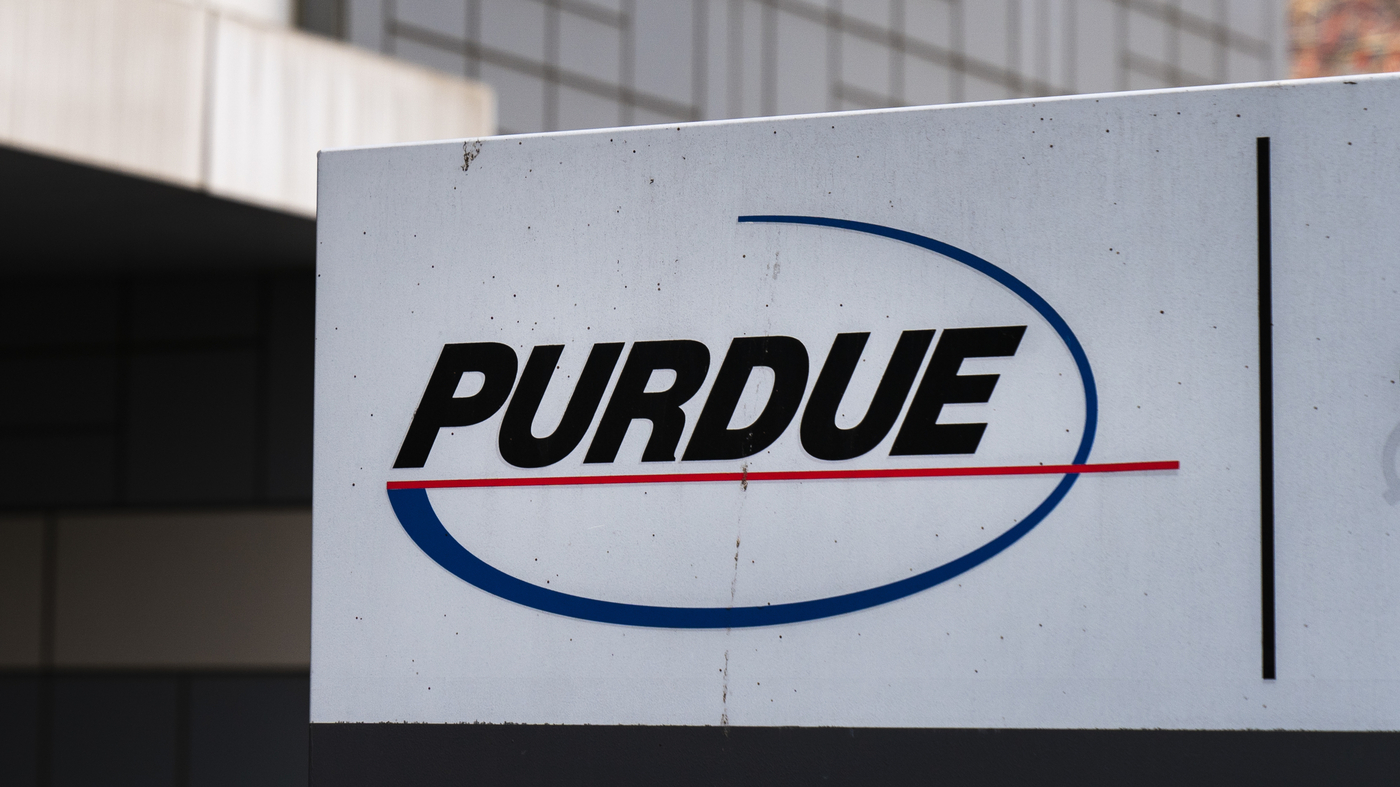Gartner vs Mckinsey - What Reports Should You Trust More, Why & When?

Summary
- McKinsey & Company and Gartner, Inc. are two of the most influential consulting and research firms in the world, providing widely cited and high-impact reports that can influence decisions in business, government, and academia.
- Despite their solid reputations, both firms have faced criticism over the years regarding bias, transparency, and conflicts of interest.
- The article below provides a clear comparison structured around the strengths and weaknesses of each. This analysis helps determine which is more relevant, depending on whether you need management-focused or technology-focused information.
Everyone who has ever looked at writing a report or reading some research should be familiar with the names McKinsey and Gartner. However, for those who are not familiar with them, here is a small description:
- McKinsey & Company is a global management consulting firm that provides a range of services to businesses, governments, and nonprofit organizations. The firm is well known for its research, with a wide range of reports and publications available on its website.
- Gartner, Inc. is a leading research and advisory firm that provides insights and analysis to businesses, governments, and nonprofits across the globe. The firm is widely respected for its thought leadership and research reports, which are often cited by policymakers and business leaders. Gartner's research is also subject to peer review, with the firm working closely with academics and other experts to ensure the accuracy and validity of its research.
However, the reliability and trustworthiness of both Gartner and McKinsey have been questioned by some critics. In today’s article, we will explore the reliability and trustworthiness of the research produced by both McKinsey and Gartner.
McKinsey Overview

McKinsey & Company is a global management consulting firm founded in 1926 by James O. McKinsey. The company offers professional services to corporations, governments, and other organizations. McKinsey is the oldest and largest of the "Big Three'' management consultancies, McKinsey, BCG, and Bain (MBB). They are the world's three largest strategy consulting firms by revenue, with McKinsey mainly focusing on the finances and operations of their clients. Besides being a well-respected company, some interesting disputable points can be made against them.
McKinsey's research is often commissioned by clients, which raises concerns about conflicts of interest. Critics argue that McKinsey may be more likely to produce research that supports its clients' interests, rather than providing objective analysis.
McKinsey had many conflicts of interest where they advised multiple companies within a sector. Over the years, its cost-cutting recommendations downplayed safety concerns at U.S. Steel, Disneyland, and American immigration centers, and shorted insurance policy holders of billions of dollars in claims.
The most shocking behavior involved McKinsey’s role in the opioid crisis. They tried to settle government investigations into its role in helping Purdue ’turbocharge’ opioid sales when thousands of people were dying of overdoses.

Purdue was seeking approval from the Food and Drug Administration for a new version of OxyContin (a Really heavy painkiller) that would be more difficult to snort or inject. After the F.D.A. denied its application in 2008, Purdue enlisted McKinsey’s help. The consultants interviewed a former drug dealer about OxyContin abuse, oversaw scientific studies, prepared regulatory documents, and coached company officials on how to deal with the F.D.A., which had been a McKinsey client. The agency gave its approval in 2010, and later allowed Purdue to claim the new pills were resistant to abuse.
Another criticism of McKinsey's research is that it is often based on data that is not available for verification. It is argued that this lack of transparency raises questions about the accuracy and reliability of McKinsey's research. On the other hand, McKinsey also makes a significant effort to be transparent about its research methods and findings, publishing detailed methodology notes and making its research available to the public.
Despite these criticisms, McKinsey's research is generally considered to be reliable and trustworthy. The firm has a reputation for creating thorough research, and its findings are often used by policymakers, academics, and business leaders.
Gartner Overview

Gartner, like McKinsey, is a well-respected research organization with clients including large corporations, government agencies, technology companies, and investment firms. Gideon Gartner founded Gartner in 1979. Whilst Gartner started as a private company, the company launched publicly as Gartner Group in 1986. However, just like McKinsey, some criticism can be made against the company.
One of the main criticisms of Gartner's research is that it is often based on surveys and interviews with vendors and clients, which raises concerns about biases and conflicts of interest. Critics argue that Gartner may be more likely to produce research that supports the interests of its clients and vendors, rather than providing objective analysis. While it is true that Gartner relies heavily on feedback from clients and vendors, the firm has a rigorous process for collecting and analyzing this feedback to ensure its impartiality. Gartner also uses a variety of data sources, including private data, which, like McKinsey’s, can not be confirmed, and third-party data, to support its research findings.
Another criticism of Gartner's research is that it is often focused on the technology industry and may not be relevant or applicable to other industries. Critics argue that Gartner's research may be biased toward the technology industry, which could limit its usefulness to businesses in other industries. While it is true that Gartner is known for its research in the technology industry, the firm also produces research reports on a wide range of topics, including healthcare, finance, and government. Gartner's research is also informed by a global network of analysts with expertise in a variety of industries.
Despite these criticisms, Gartner's research is generally considered to be reliable and trustworthy. The firm has a reputation for conducting thorough and rigorous research, and its findings are often cited by policymakers, academics, and business leaders. Gartner's research is also subject to peer review, with the firm working closely with academics and other experts to ensure the accuracy and validity of its research.
Comparing 1 on 1
Continuing to what these companies are actually about, their research. Both companies luckily have some fields of interest that overlap, which makes comparing research quite easy. For example, we have the following two articles, both of which were written around the same time:
- McKinsey: Generative AI is here: How tools like ChatGPT could change your business
- Gartner: Beyond ChatGPT: The Future of Generative AI for Enterprises
McKinsey’s article starts by talking about the power of ChatGPT. It speaks a little about what AI does and how it can be used by anyone. The end of the introduction is as follows:
’’But as with every new technology, business leaders must proceed with eyes wide open, because the technology today presents many ethical and practical challenges.’’
After the McKinsey text talks about the fields that AI can be used in nowadays, it shifts to the potential dangers of artificial intelligence and how it can be ensured that it is used for good.
Gartner’s text, on the other hand, focuses on the uses of generative AI in enterprise applications. What is quite remarkable is that Gertner discusses the same topics as McKinsey, but places the main focus on a totally different one.
Both texts recognize that AI has the potential to greatly impact our lives, for better or for worse.
Another similarity is that both texts highlight the importance of responsible use of technology. McKinsey emphasizes the need for regulation and ethical considerations when developing and deploying AI. Gartner’s text also touches on the idea of responsibility. However, Gartner focuses way more on the potential fields of usage, leaving the ethical part in a small section at the bottom. While they both touch on AI, they approach the topic from different angles.
Furthermore, the difference between the two texts is their overall tone, due to the different focuses of the two. The first text has a more cautionary tone, expressing concerns about the dangers of AI if it is not properly regulated. The second text, on the other hand, is more optimistic and highlights the potential benefits of generative AI in enterprise settings.
In conclusion, the two texts have some similarities and differences. They both touch on the topic of AI and highlight the importance of responsible use of technology. However, they differ in tone and focus, with the first text taking a more cautionary approach and focusing on ethics, while the second text is more optimistic and focused on enterprise applications. Overall, they provide different perspectives on the potential impact of AI on society.
In conclusion, there are valid concerns about the reliability and trustworthiness of research produced by Gartner. However, Gartner has a huge process for research and making sure of its accuracy. Furthermore, its findings are widely respected in the business and academic communities.
It is difficult to definitively say which research firm is the most reliable and trustworthy, as both McKinsey & Company and Gartner, Inc. have established reputations for producing high-quality research. Both firms have well-set processes for conducting research, including collecting data from a variety of sources and peer review.
Ultimately, the choice between McKinsey & Company and Gartner, Inc. depends on what kind of research you need. McKinsey is a better fit for those looking for research on management and business practices. Gartner, on the other hand, is a better fit for those looking for research on technology and related industries. Nevertheless, there are also fields, like the AI topic, that are covered by both companies. Both firms have a long history of producing high-quality research and have established reputations for reliability and trustworthiness. However, ethically speaking, one company can be deemed worse than the other. Which it is we will leave up to you to decide.
Related Questions & Answers
When and by whom was McKinsey & Company founded?
What is Gartner known for in the research and advisory industry?
Have McKinsey and Gartner faced criticism regarding their research reliability?
Which types of organizations typically rely on McKinsey and Gartner research?
How do McKinsey and Gartner differ in focus for their research?
What makes Gartner's research reports valuable to businesses?
What is the significance of the Magic Quadrant in Gartner's research method?